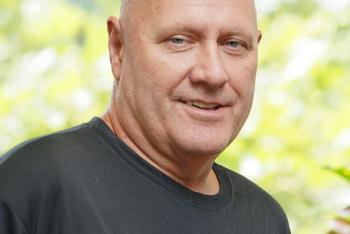Vince Yankowski joined Inspira's Diabetes Self-Management Program and Diabetes Support Group, where...
Read More
The endocrinologists at Inspira are here to help diagnose diabetic conditions, manage diabetes, improve your quality of life.
Diabetes occurs when your glucose or blood sugar is too high. Insulin, a hormone, helps you regulate your blood sugar. In some cases, your body doesn’t produce enough insulin or doesn’t use it well. Diabetes is a chronic condition that requires ongoing health management.
Type 1 diabetes occurs when the body doesn’t produce insulin, usually diagnosed in childhood or young adulthood. Type 2 diabetes results from insulin resistance, where the body doesn’t use insulin properly. Gestational diabetes affects pregnant individuals with high blood sugar but typically resolves after childbirth.
There aren’t always symptoms associated with diabetes (diabetes mellitus), but those who experience them may notice:
Diabetes is typically diagnosed using various blood tests. The most common blood tests include A1C tests, which measure average blood sugar levels over the past 2-3 months, and fasting blood sugar tests. Your physician may also recommend a glucose tolerance test, which measures your blood sugar before and after drinking a liquid containing glucose.

Diabetes treatment depends on the type, stage and individual’s overall health.

Managing diabetes requires you to monitor and control your blood sugar levels regularly. Your doctor may recommend a continuous glucose monitor to track blood sugar levels and keep them in range.

Knowing when and what to eat can help you control diabetes symptoms and progression. Working with a dietitian can help you determine what steps you can take to control your blood sugar with what you eat.

Some oral medications may help improve insulin sensitivity, stimulate insulin production or block glucose absorption. In some cases, insulin injections may be necessary to manage diabetes.
At Inspira, we help you manage diabetes and related health issues, backed by an entire network of physicians. We provide seamless patient experience, coordinating care between primary care doctors, dietitians, wound care specialists, podiatrists and rehabilitation specialists.
Managing diabetes requires ongoing care, and we offer convenient access to expert treatment across South Jersey. Whether you're newly diagnosed or have managed diabetes for years, our team is here to create a personalized plan to improve your quality of life.
Diabetes is not reversible but can be controlled with regular health care. Prediabetes is a warning sign that can be reversed with diet, exercise and lifestyle changes.
Yes, there is a genetic component to type 1 and 2 diabetes. If you have an immediate family member with diabetes, it’s more likely that you will also develop it. Lifestyle and environment also play a role in diabetes development.
All foods can be part of a healthy diet with diabetes. The key is moderation and monitoring your blood sugar levels on a regular basis.



Vince Yankowski joined Inspira's Diabetes Self-Management Program and Diabetes Support Group, where...
Read More
Managing diabetes involves more than blood sugar control—it also requires diligent wound care to...
Read More
Discover the lesser-known type 1.5 diabetes, often misdiagnosed as type 2, and learn how to...
Read More